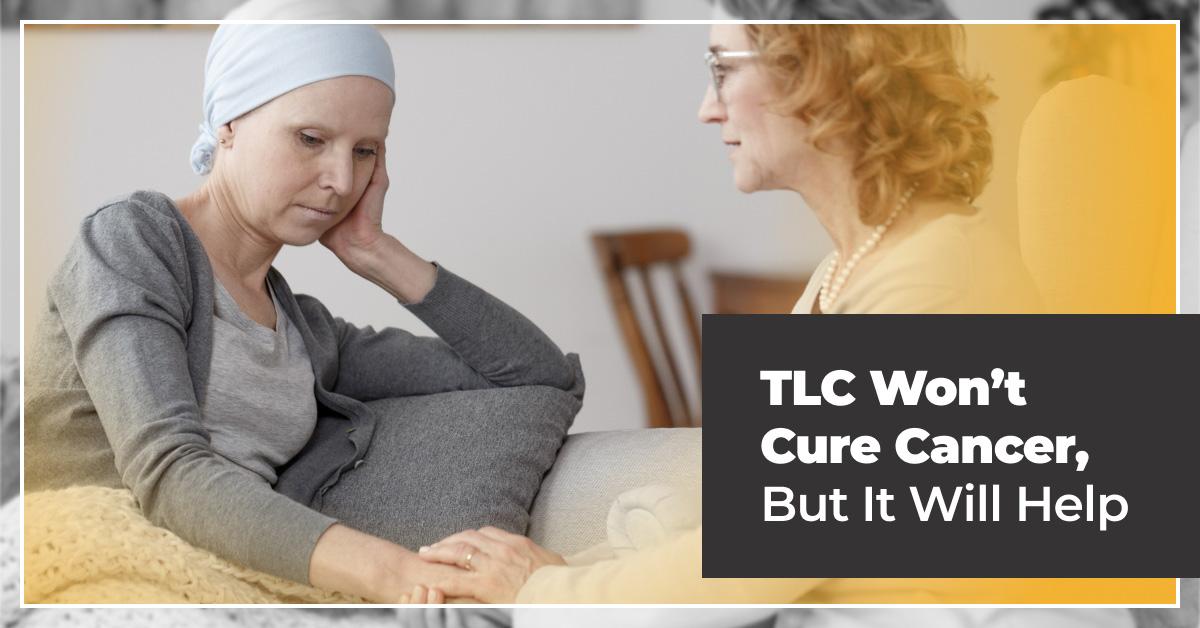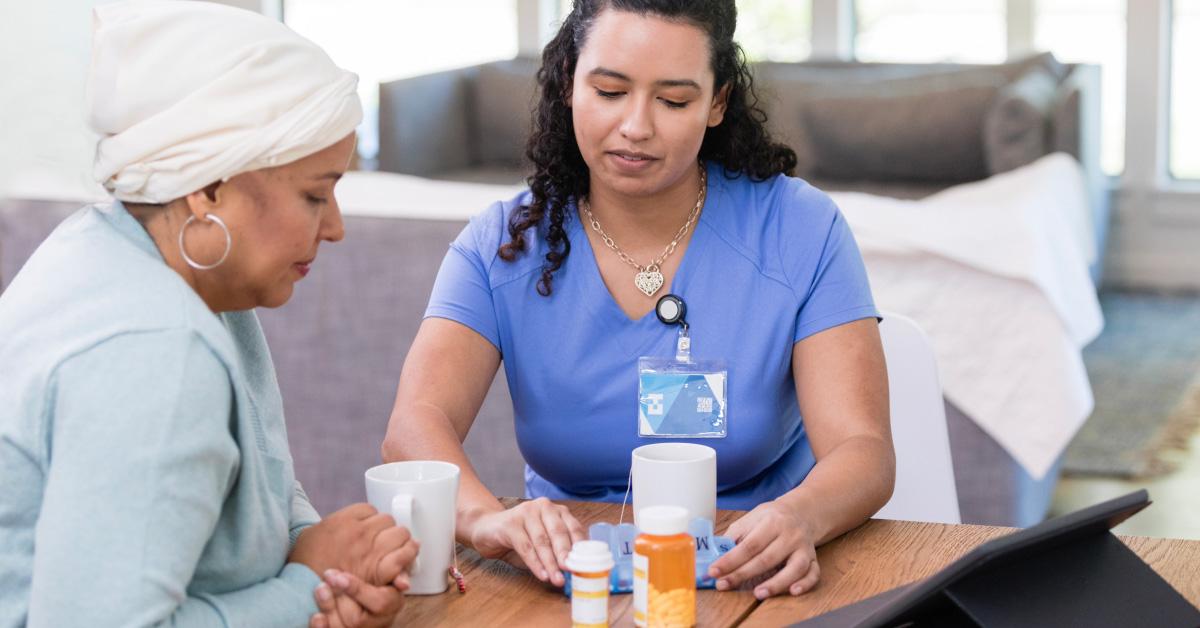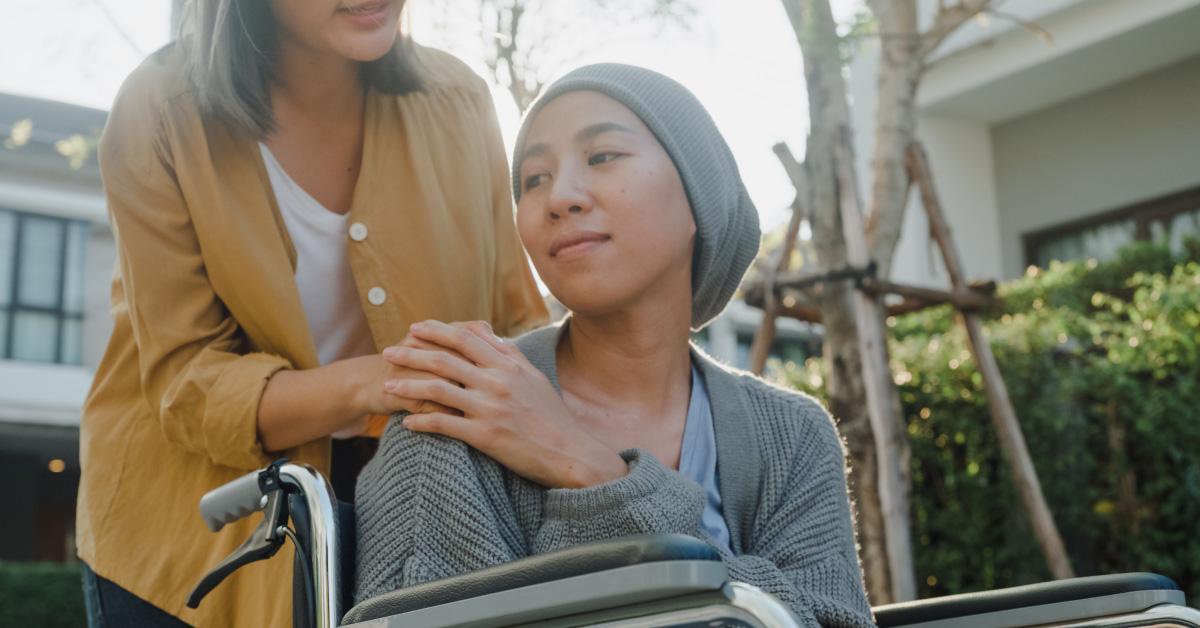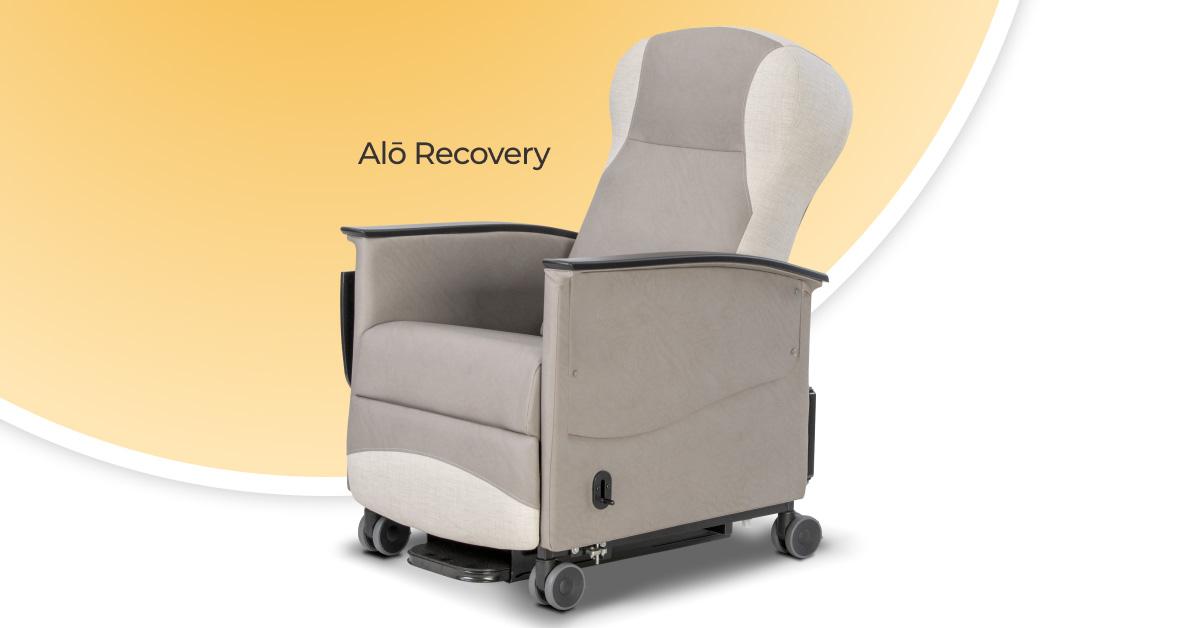
Cancer is relentless.
It disrupts lives, challenges even the most advanced medical expertise, and forces patients and their families into an emotional and physical battle they never signed up for.
Oncology professionals witness firsthand the toll it takes—debilitating treatments, unpredictable outcomes, and the profound impact on quality of life. Despite groundbreaking advancements, cancer remains a formidable adversary, demanding constant innovation, compassion, and resilience from those who fight it every day.
While cutting-edge treatments like immunotherapy, chemotherapy, radiation, and targeted medications are crucial in the fight against cancer, they are only part of the equation. The human side of care—emotional support, compassionate communication, and personalized attention—plays an equally vital role in a patient’s journey.
Cancer treatments can be grueling, often leaving patients physically drained and emotionally overwhelmed. That’s why tender, loving care (TLC) is not just a comforting addition but a necessary component of effective treatment. Providing reassurance, addressing mental health needs, and fostering a sense of hope can significantly impact a patient’s resilience, treatment adherence, and overall well-being.
Sign up to get the latest industry news and offers right in your inbox
Types of Immunotherapy and Who Benefits From Immunotherapy
Immunotherapy is a type of cancer treatment that harnesses the body’s immune system to recognize, attack, and destroy cancer cells. Unlike chemotherapy or radiation, which directly target cancer cells, immunotherapy boosts or modifies the immune response to improve its ability to fight cancer.
There are several types of immunotherapy, including Checkpoint Inhibitors, CAR T-Cell Therapy, Cancer Vaccines, Monoclonal Antibodies, and Cytokine Therapy.
Immunotherapy is commonly used for lung, melanoma, bladder, and some gastrointestinal cancers. Studies show that patients with high PD-L1 expression tend to respond better to immunotherapy than patients with other markers. Unfortunately, not all cancers respond well, and side effects include inflammation, autoimmune reactions, fatigue, and organ damage.
Recently, an advisory panel for the Food and Drug Administration (FDA) recommended restricting the use of the immunotherapy drugs nivolumab (Opdivo) and pembrolizumab (Keytruda) for patients with unresectable or metastatic esophageal and gastric cancers to those with PD-L1 expression of 1% or higher.
This decision follows studies showing that patients with lower PD-L1 levels do not significantly benefit from these drugs and may face serious risks.
Despite opposition from drugmakers Merck and Bristol Myers Squibb, the panel voted almost unanimously that the risks outweigh the benefits for low-PD-L1 patients. The FDA is expected to follow the panel’s guidance, which could lead to changes in drug labeling and insurance coverage.
Read More: “FDA Panel Votes for Limits on Gastric, Esophageal Cancer Immunotherapy”
When oncologists cannot use immunotherapy, they typically rely on other treatment options based on the type and stage of cancer, as well as the patient’s overall health.
Common alternatives to immunotherapy include chemotherapy (such as platinum-based, fluoropyrimidines, and taxanes), targeted therapy (for example, HER2-targeted therapy and VEGF inhibitors), radiation, and surgery.

FDA Approvals for Cancer Treatments
While the FDA does not issue approval announcements for every approval or drug label update that occurs in oncology and hematology, there have been some positive announcements of late.
- On January 17, 2025, the Food and Drug Administration approved datopotamab deruxtecan-dlnk (Datroway, Daiichi Sankyo, Inc.), a Trop-2-directed antibody and topoisomerase inhibitor conjugate, for adult patients with unresectable or metastatic, hormone receptor (HR)-positive, human epidermal growth factor receptor 2 (HER2)-negative (IHC 0, IHC1+ or IHC2+/ISH-) breast cancer who have received prior endocrine-based therapy and chemotherapy for unresectable or metastatic disease.
- On January 16, 2025, the Food and Drug Administration approved sotorasib (Lumakras, Amgen Inc.) with panitumumab (Vectibix, Amgen Inc.) for adult patients with KRAS G12C-mutated metastatic colorectal cancer (mCRC), as determined by an FDA-approved test, who have received prior fluoropyrimidine-, oxaliplatin-, and irinotecan-based chemotherapy.
- On January 16, 2025, the Food and Drug Administration granted traditional approval to acalabrutinib (Calquence, AstraZeneca) with bendamustine and rituximab for adults with previously untreated mantle cell lymphoma (MCL) who are ineligible for autologous hematopoietic stem cell transplantation (HSCT).
When medications, infusion therapy, and aggressive treatments are not an option, palliative care focuses on symptom management and quality of life. Oncologists don’t ever give up on patients, even when remission isn’t possible. Patients remain top of mind and the singular focus of compassionate care.

How to Put TLC Into Tangible Action
Tender, loving care for cancer patients involves emotional, physical, and practical support to improve their quality of life.
Here are some practical examples of TLC and what it looks like in action.
Emotional Support
* Be Present: Sometimes, just sitting with them without forcing conversation helps.
* Listen Without Judgment: Let them express fears, frustrations, and hopes.
* Encourage, but Don’t Pressure: Offer positive reinforcement but allow them space.
Physical Comfort
- Help With Pain Management: Assist with medication schedules, heating pads, or gentle massage.
- Create a Comfortable Environment: Adjust lighting, provide soft blankets, and reduce noise.
- Encourage Gentle Movement: Help them walk if able or do light stretching.
Practical Assistance
- Prepare Nutritious Meals: Small, frequent, and easy-to-digest meals based on their preferences.
- Assist With Daily Tasks: Help with laundry, grocery shopping, or paying bills.
- Drive Them to Appointments: Medical visits can be exhausting; a companion helps.
Social & Mental Well-being
- Facilitate Virtual or In-Person Visits: Keep them connected to family and friends.
- Provide Entertainment: Offer books, movies, music, or puzzles.
- Respect Their Wishes: Support their choices regarding treatment and lifestyle.
Caregiver Self-Care (Important!)
- Avoid Burnout: Take breaks and ask for help.
- Stay Educated: Understand their condition to provide informed support.
- Be Patient and Flexible: Their needs and moods may change daily.
Read More: “Easing Anxiety and Stress in Oncology Patients: The Role of Comfortable Treatment Chairs”
Champion Puts the “C” in TLC
With the same bells and whistles as the Alō Treatment recliner, Champion’s flagship chair for treatment in oncology and infusion settings, the Alō Recovery has a lower working height for patients and caregivers, with use across a variety of acute applications and environments.

Modular in design for adaptable configurations in any facility, every chair boasts an all-steel base and frame for the most demanding use. Yet these medical recliners are engineered for premium comfort and are available in a range of aesthetically pleasing fabrics and finishes.
Standard Features Include:
- Trendelenburg positioning
- Swing-away arms
- Foot tray
- Fold-down side table
- Push handle
To view Champion’s entire portfolio of products, browse our digital catalog. Then, request a quote for your facility.
